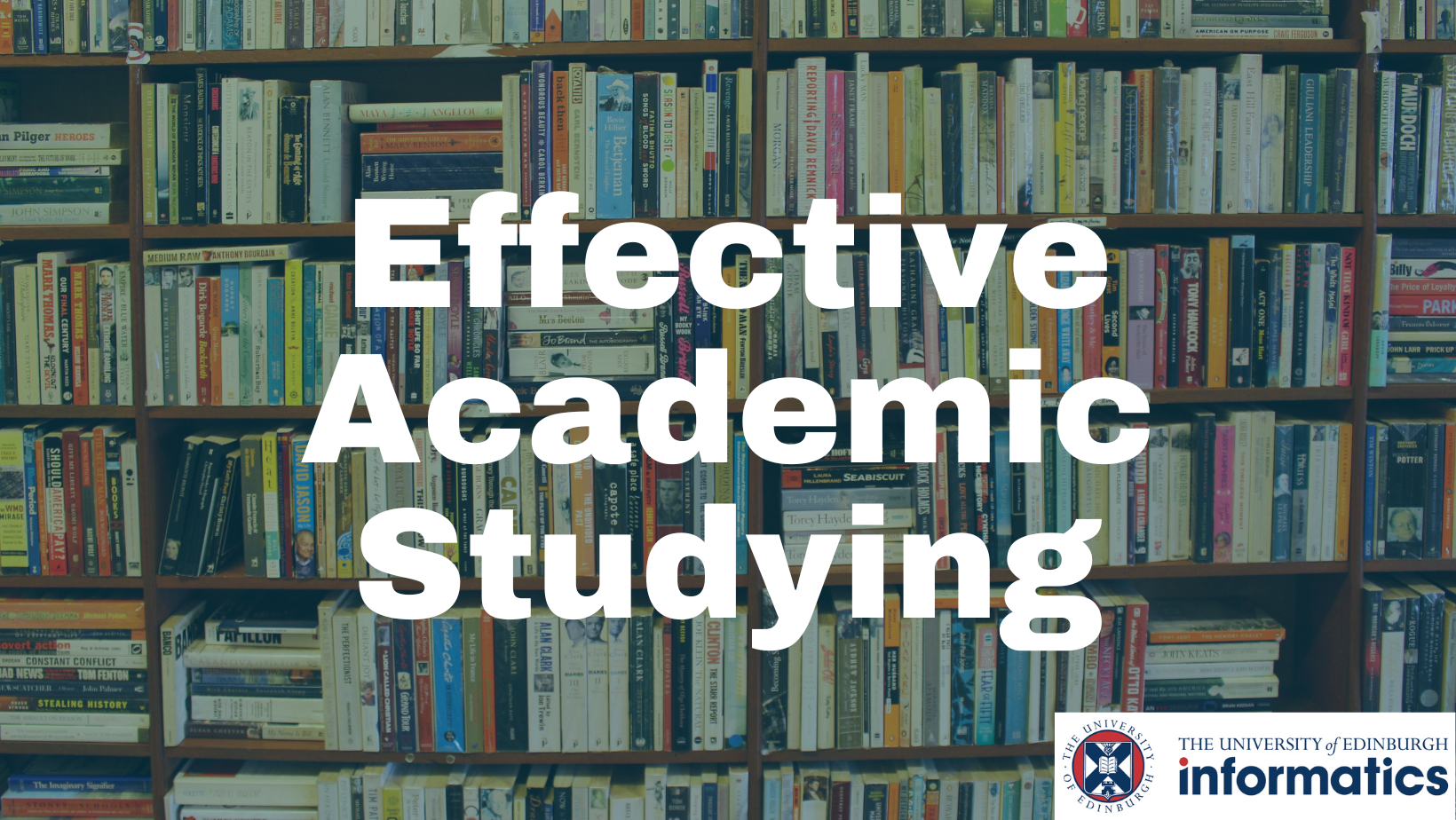Effective Academic Reading

Reading academic books effectively is an important skill you will learn and improve throughout your degree. Here you will find tips on how to approach it.
Introduction
I remember when I was beginning my first year, I had some trouble reading textbooks. The trouble wasn’t with the actual reading (although the language in textbooks can be complicated). Instead, the trouble was with absorbing the information to remember it.
I often felt as if I was just reading to a certain page and calling it a victory when I got there, with a reward of another episode of whatever I was watching on Netflix at the time. However, a few days later I’d try and recall that information for a tutorial sheet and I wouldn’t have a clue where to start.
I found that the problem was with how I was reading the textbook. I was reading the textbook with the same attitude that I would read novels. Textbooks and novels require two completely different reading styles as you are reading for two entirely different purposes. With textbooks you are reading to learn the material and come to a better understanding. To make sure nobody follows my old naive ways, I am going to be sharing 3 tips on how to make the most out of your reading.
Important Tips
1. Read the end of the chapter first and look at questions
Unlike novels, with textbooks there is no need to read a chapter from start to end. In fact, it is better to read the end of the chapter first. When we read the end of the chapter first, we are looking at the summary and exercises for the chapter we are away to read. Not only will this give us the context of what we are away to learn but it will also give us some clues about the types of questions we may be asked. This allows us to pick out the key information as we are reading
2. Re-reading chapters repeatedly is not effective study
Re-reading chapters is one of the most inefficient ways of remembering information. In the novel ‘Make it Stick: The Science of Successful Learning’ by Peter C. Brown, he discusses effective study techniques. He finds that re-reading chapters is very inefficient at remembering information. Instead of re-reading, I would suggest discussing the topics with someone who challenges you intellectually. By discussing topics, you are bouncing ideas of one another and come to a concrete understanding of the material. Furthermore, it is an amazing opportunity to help each other out.
Make It Stick: The Science of Successful Learning by Peter C. Brown
3. Challenge the claim made by the author
This is particularly relevant for readings which may involve formal proofs such as Mathematics and Computer Science. The foundations of science are built upon proofs to make universally true statements. To gain a deep understanding for concepts within science, it is useful to challenge any claims that the author makes. Perhaps even trying to prove it for yourself. This may take some time but will prove invaluable in the long term!
Blog post originally written by Donald Jennings, Informatics Communications Intern 2022.
Edited by Dimona Videnlieva, Informatics Communications Intern 2023.




2 replies to “Effective Academic Reading”